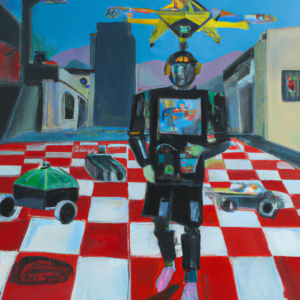The singularity is a hypothetical future event, proposed by futurist and inventor Ray Kurzweil, in which the pace of technological progress will accelerate so rapidly that it will result in a radical transformation of human civilization. According to Kurzweil, the singularity will be driven by advances in artificial intelligence (AI) and other emerging technologies. It will lead to a scenario in which humans and machines merge to form a new type of being.
Kurzweil’s singularity argument is based on the idea that technological progress follows an exponential curve, meaning that it tends to increase at a faster and faster rate over time. Kurzweil argues that this exponential progress will eventually lead to a point where technology becomes so advanced that it will fundamentally transform human society and our understanding of the world.
However, Kurzweil’s singularity argument has been the subject of much debate and criticism. Some argue that it is difficult to predict the future trajectory of technological progress, and that the singularity may never occur. Others argue that even if the singularity does occur, it is unclear what the consequences will be and whether they will be positive or negative.
Overall, the singularity argument is a provocative and thought-provoking idea that highlights the potential for technology to fundamentally change the world. However, it is important to recognize that the singularity is a hypothetical future event and that it is not certain to occur or to have any specific consequences.

